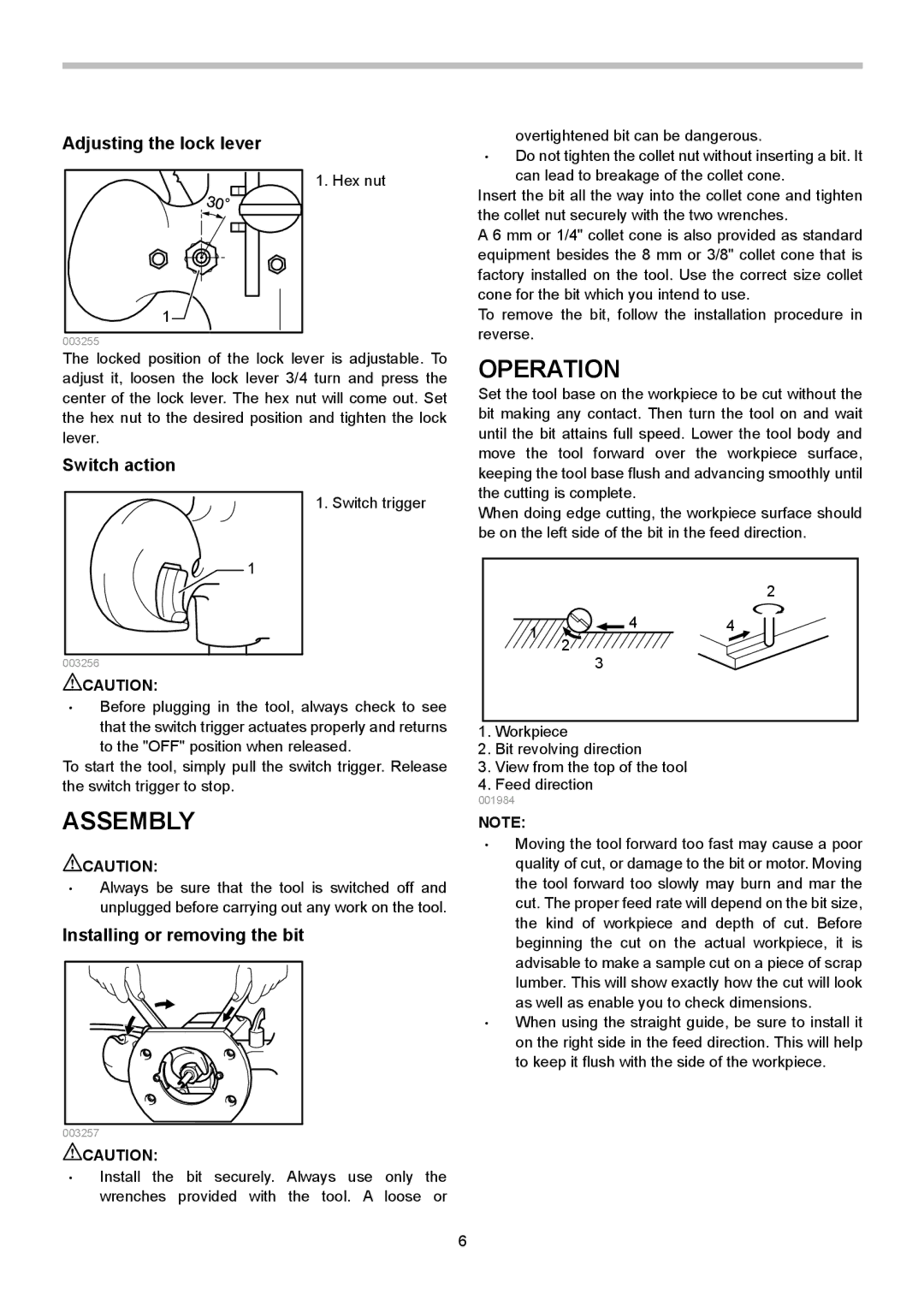
Adjusting the lock lever
1. Hex nut
1
003255
The locked position of the lock lever is adjustable. To adjust it, loosen the lock lever 3/4 turn and press the center of the lock lever. The hex nut will come out. Set the hex nut to the desired position and tighten the lock lever.
Switch action
overtightened bit can be dangerous.
•Do not tighten the collet nut without inserting a bit. It can lead to breakage of the collet cone.
Insert the bit all the way into the collet cone and tighten the collet nut securely with the two wrenches.
A 6 mm or 1/4" collet cone is also provided as standard equipment besides the 8 mm or 3/8" collet cone that is factory installed on the tool. Use the correct size collet cone for the bit which you intend to use.
To remove the bit, follow the installation procedure in reverse.
OPERATION
Set the tool base on the workpiece to be cut without the bit making any contact. Then turn the tool on and wait until the bit attains full speed. Lower the tool body and move the tool forward over the workpiece surface, keeping the tool base flush and advancing smoothly until the cutting is complete.
![]() 1
1
003256
![]() CAUTION:
CAUTION:
1. Switch trigger
When doing edge cutting, the workpiece surface should be on the left side of the bit in the feed direction.
|
| 2 |
1 | 4 | 4 |
2 |
| |
|
| |
| 3 |
|
•Before plugging in the tool, always check to see
that the switch trigger actuates properly and returns to the "OFF" position when released.
To start the tool, simply pull the switch trigger. Release the switch trigger to stop.
ASSEMBLY
![]() CAUTION:
CAUTION:
•Always be sure that the tool is switched off and unplugged before carrying out any work on the tool.
Installing or removing the bit
003257
![]() CAUTION:
CAUTION:
•Install the bit securely. Always use only the wrenches provided with the tool. A loose or
1.Workpiece
2.Bit revolving direction
3.View from the top of the tool
4.Feed direction
001984
NOTE:
•Moving the tool forward too fast may cause a poor quality of cut, or damage to the bit or motor. Moving the tool forward too slowly may burn and mar the cut. The proper feed rate will depend on the bit size, the kind of workpiece and depth of cut. Before beginning the cut on the actual workpiece, it is advisable to make a sample cut on a piece of scrap lumber. This will show exactly how the cut will look as well as enable you to check dimensions.
•When using the straight guide, be sure to install it on the right side in the feed direction. This will help to keep it flush with the side of the workpiece.
6
